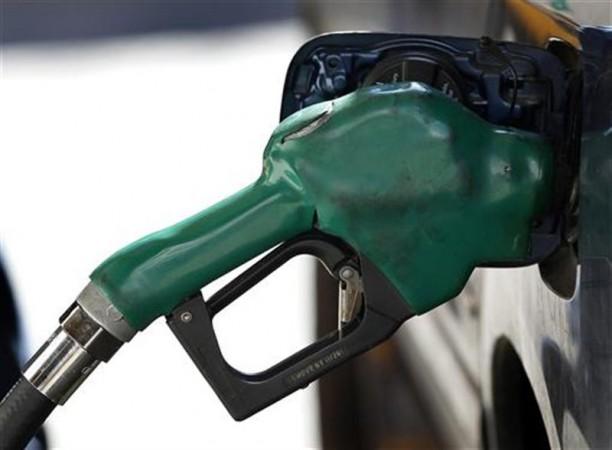
The announcement of the government to hike petrol price by Rs 7.50 per litre, which will come into effect on Thursday, has not gone down too well with the public and government allies. The Bharatiya Janata Party (BJP) is even planning a nation-wide bandh to demand immediate rollback of the petrol price hike.
With pressure brewing against the price increment, it's likely that the center may consider rolling back the price hike.
Implementation of the hike can have adverse impacts on various domestic and global sectors. Here are the five possible consequences that may arise because of petrol price hike.
1. The possibility of a rollback in petrol prices may be on the cards as pressure is coming in from all quarters on the government to withdraw the hike. Media reports said that the center may announce a rollback of Rs. 2 to Rs. 2.50 per litre on Friday.
2. There's also talk of raising diesel and LPG prices. However, the center is yet to make an announcement on this matter. With the government borrowing from RBI to help compensate oil suppliers for providing subsidized rates of diesel and LPG prices, an overall hike on petroleum products will help ease government finances, NDTV noted.
According to reports, Diesel may rise by Rs. 5 per liter while the cost of an LPG cylinder may jump by Rs. 50.
3. India's automobile industry will perhaps be the most affected, with the price hike likely to curb demand for vehicles that run on petrol. Auto shares have already taken a hit following petrol price hike, falling 1.1 percent on Wednesday's trade. However, the hike is anticipated to boost diesel vehicle sales, with the fuel costing Rs 25-35 less than that of petrol.
"Petrol cars are not selling as such already. With this record hike, the situation will go from bad to worse," Society of Indian Automobile Manufacturers (SIAM) Senior Director Sugato Sen told PTI.
4. Demand for alternative sources of energy such as natural gas may jump, and may thereby lead to a shortfall in supply. India imports around 170 million tonnes of oil and may need more to compensate the deficit in natural gas.
5. Freight charges are bound to rise with hike in petrol price; thereby affecting goods carrier operations across the country. This would invariably lead to a surge in commodity prices transported across the country.
"The long awaited 11% hike in petrol prices will impact inflation by 12bps but has no impact on the subsidy bill as petrol is a de-regulated fuel. What is critical to the fiscal picture is an increase in prices of the regulated fuels (diesel, LPG, kerosene), where prices have been unchanged since June 2011 and losses have mounted to Rs 1,624 billion (Govt's share Rs 730 billion). This is important as the FY13 budget provision on fuel subsidies have been utilized for payment of FY12 dues," India Infoline quoted economist Rohini Malkani of Citi India as saying.

















